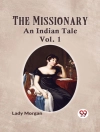Just So Stories for Little Children is a 1902 collection of origin stories by the British author Rudyard Kipling. Considered a classic of children’s literature, the book is among Kipling’s best known works.
Kipling began working on the book by telling the first three chapters
as bedtime stories to his daughter Josephine. These had to be told
’just so’ (exactly in the words she was used to) or she would complain.
The stories describe how one animal or another acquired its most
distinctive features, such as how the Leopard got his spots. For the
book, Kipling illustrated the stories himself.
The stories have appeared in a variety of adaptations including a
musical and animated films. Evolutionary biologists have noted that what
Kipling did in fiction, they have done in reality, providing
explanations for the evolutionary development of animal features.
The Just So Stories each tell how a particular animal was
modified from an original form to its current form by the acts of man,
or some magical being. For example, the Whale has a tiny throat because
he swallowed a mariner, who tied a raft inside to block the whale from
swallowing other men. The Camel has a hump given to him by a djinn
as punishment for the camel’s refusing to work (the hump allows the
camel to work longer between times of eating). The Leopard’s spots were
painted by an Ethiopian
(after the Ethiopian painted himself black). The Kangaroo gets its
powerful hind legs, long tail, and hopping gait after being chased all
day by a dingo, sent by a minor god responding to the Kangaroo’s request to be made different from all other animals.
The Just So Stories began as bedtime stories told to his
daughter ’Effie’ [Josephine, Kipling’s firstborn]; when the first three
were published in a children’s magazine, a year before her death,
Kipling explained: ’in the evening there were stories meant to put Effie
to sleep, and you were not allowed to alter those by one single little
word. They had to be told just so; or Effie would wake up and put back
the missing sentence. So at last they came to be like charms, all three
of them, —the whale tale, the camel tale, and the rhinoceros tale.’
Joseph Rudyard Kipling (30 December 1865 – 18 January 1936) was an English journalist, short-story writer, poet, and novelist.
Kipling’s works of fiction include The Jungle Book (1894), Kim (1901), and many short stories, including ’The Man Who Would Be King’ (1888). His poems include ’Mandalay’ (1890), ’Gunga Din’ (1890), ’The Gods of the Copybook Headings’ (1919), ’The White Man’s Burden’ (1899), and ’If—’ (1910). He is regarded as a major innovator in the art of the short story; his children’s books are classics of children’s literature, and one critic described his work as exhibiting ’a versatile and luminous narrative gift’.
Kipling was one of the most popular writers in the United Kingdom, in both prose and verse, in the late 19th and early 20th centuries. Henry James said: ’Kipling strikes me personally as the most complete man of genius, as distinct from fine intelligence, that I have ever known.’In 1907, at the age of 42, he was awarded the Nobel Prize in Literature, making him the first English-language writer to receive the prize and its youngest recipient to date. He was also sounded out for the British Poet Laureateship and on several occasions for a knighthood, both of which he declined.












